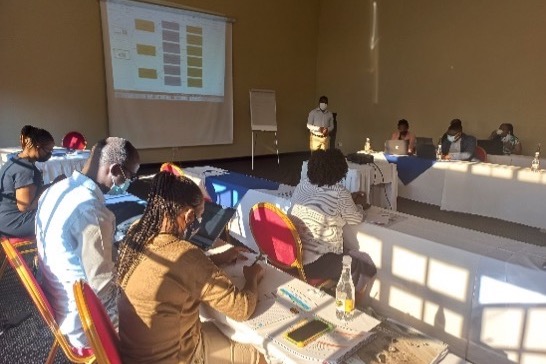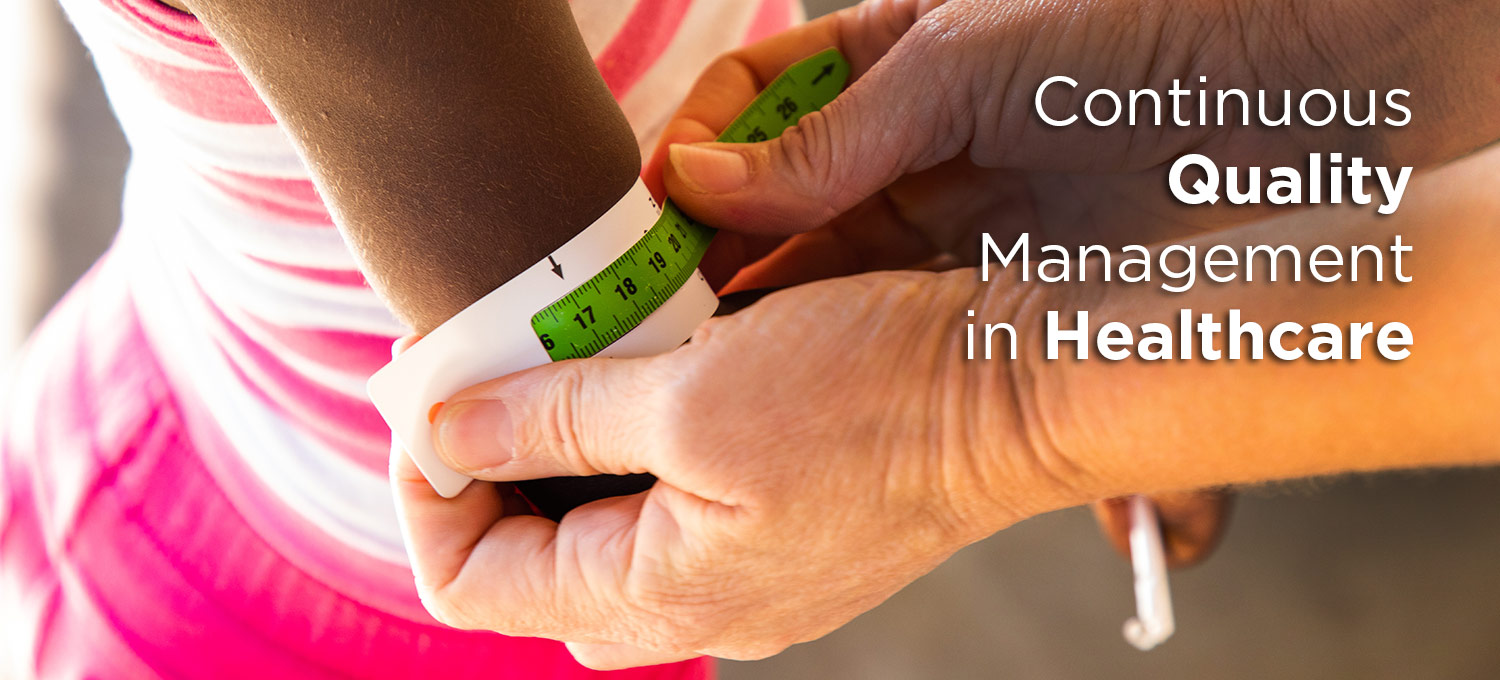Quality Improvement Training for MOHW HIV Coordinators
 Botswana–University of Maryland School of Medicine Health Initiative (Bummhi), in partnership with the Ministry of Health and Wellness (MOHW), facilitated a three-day quality improvement training to empower HIV program managers to lead and model the institutionalization of CQI in the HIV and tuberculosis cascade at the national, district, and facility levels.
Botswana–University of Maryland School of Medicine Health Initiative (Bummhi), in partnership with the Ministry of Health and Wellness (MOHW), facilitated a three-day quality improvement training to empower HIV program managers to lead and model the institutionalization of CQI in the HIV and tuberculosis cascade at the national, district, and facility levels.
The training also promoted the “twinning model,” a one-to-one mentorship approach between MOHW program coordinators and Bummhi counterparts that facilitates a culture of improvement for sustainability.
Dr. Bornapate Nkomo, a MOHW public health specialist and head of HIV programmes, opened the training. The training updated participants on the current performance gaps and how to use CQI tools and processes to examine data and make immediate improvements. The program managers learned the importance of using data to prioritize underperforming facilities, as well as to cascade the continuous improvement culture to different levels. The participants were also encouraged to support the routine documentation of their work and further improve dissemination of best practices in Botswana and beyond.
Facilitators included Ms. Unami Mathebula, a CQI lead at the Centers for Disease Control and Prevention, who discussed the importance of conducting site improvement assessments for performance improvement. Josephine Tlale, a MOHW CQI advisor, took participants through the interrogation of data and identification of gaps. Malebogo Thero, a CQI specialist at Bummhi, emphasized the use of the twinning model to cascade CQI, and Oarabile Makgabana, a CQI lead at Ciheb, focused on clients’ needs and expectations to improve care and deliver quality services at all levels.
Some of the comments provided from the participants included:
- “That was an eye-opener, especially for us counselors to have a feel of what we are doing on the ground, by just doing a simple assessment of what the client needs and expectations are, mainly in these COVID times.” - Panky Mogomotsi, National HIV Testing Services Program Coordinator, MOHW
- “For quality to be quality, there has to be a baseline for us to determine the gap, so quality requires data, and data informs the quality.” - Malebego Thero, Bummhi
- “At times it’s important to assess the entire system at the facility level before going into remediation. For example, even before training it’s important to understand if the facility staff require the training when the system could be dysfunctional.” - MOHW attendee


